Background
Turkey is a NATO member located at the gateway between Europe and the Middle East. The country borders two failed states–Iraq and Syria–and subsequently is under constant threat from the residual effects of regional conflict. The Syrian civil conflict poses a threat to Turkish national security as rockets and shells regularly land on the side of the Turkish border injuring and killing civilians.
Turkey also shares a border with a regional adversary, Iran, which possesses an advancing ballistic missile arsenal that puts Turkey at risk. Indeed, Turkey is within range of many of Iran’s short- and medium-range ballistic missiles. The quantity and proximity of these threats make air and missile defense appealing to Turkey. As a result, the country has made considerable efforts to acquire and/or host foreign missile and air defense systems while also researching and developing defense systems domestically.
Nevertheless, Turkey’s relationship with the United States and NATO is complicated. Following Russia’s invasion of Ukraine, Turkish President Erdoğan has refused to place sanctions on Russia or close its airspaces to Russian aircraft. Turkey’s tepid NATO commitment fosters a strange relationship between the U.S. and Turkey. Turkey and Erdoğan have also held up the ascensions of Sweden and Finland into NATO, although both have been approved by the Turkish government over time.
In August 2015, both the U.S. and Germany announced the removal of their Patriot batteries from Turkey. As of February 2016, Spain is the only nation with a Patriot battery operating in Turkey. In June 2016, Italy deployed a SAMP/T battery in southern Turkey to assist the NATO mission in protecting Turkey from ballistic missile threats in Syria. Iran declared that the deployment of the NATO missile defense shield would exacerbate regional tensions.[iii]
As of 2022, Turkey does not yet have an indigenous ballistic missile defense system—but has made moves to develop one—and currently relies on Patriot Advanced Capability-2 and the SAMP-T provided by NATO allies Spain and Italy respectively. In January 2013, NATO deployed Patriot Advanced Capability (PAC-3) missiles to Turkey’s southwest border to protect its citizens from Syrian short-range missile strikes.[ii] Initially, these forces consisted of Patriot batteries from the United States, Germany, and the Netherlands. The Netherlands removed its Patriot battery in January 2015 and was replaced by a Spanish Patriot (PAC-2) battery.
Turkey’s Air Defense Capabilities
| System | Platform/Role | Number Deployed | Operator | |
| NASAMS | Road-Mobile/Medium-Range Air Defense | Unknown | Turkey | 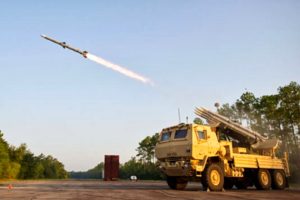 |
| Sea Sparrow Missile | Sea-Based/Short-Range Air Defense | Deployed on four Barbaros-class frigates | Turkey | 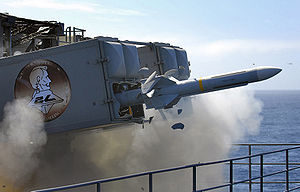 |
| Rapier FSC (Field Standard C) | Ground-Based; Road-Mobile/Short-Range Air Defense | Unknown | Turkey | 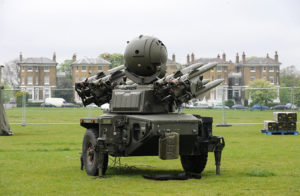 |
| Sea Zenith CIWS | Sea-Based/Short-Range Air Defense | Three systems deployed aboard each of the four Barbaros-class frigates (12 total) | Turkey | 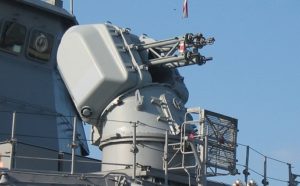 |
| HISAR | Ground-Based; Road-Mobile/Short-Range Air Defense | Unknown | Turkey | 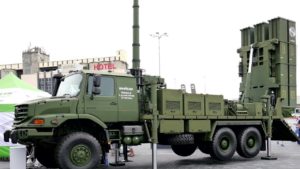 |
Current Developments
In June 2016 an Italian Eurosam SAMP/T long-range air-defense unit has arrived in southern Turkey’s Kahramanmaras province as part of NATO measures to reinforce Turkey’s border defenses against a possible Syrian missile threat.
Turkey is developing its own long-range air missile defense system known as T-LORAMIDS. Turkey awarded a $3.4 billion contract to the China Precision Machinery Import and Export Corp (CPMIEC) in a co-production agreement to produce the FD-2000 missile defense system.[iv] Turkish procurement officials cited joint-production, delivery time, and price for reasons favoring the Chinese bid; however, the agreement has not been finalized. Turkish procurement officials acknowledged in Feb 2014 that moving forward with the Chinese bid could jeopardize future defense collaborations with NATO and the missile defense project was ultimately canceled by Turkey in late 2015.[v]
In November 2015, after the Chinese T-LORAMIDS missile defense project was canceled, Turkey expressed intent to develop a missile defense system internally. It is likely that the contract for the missile defense system will be contracted to state-controlled Turkish companies Aselsan and Roketsan, possibly in cooperation with Lockheed Martin and Raytheon. Nonetheless, Turkey has claimed that its likely to purchase a bridge-gap solution—either the U.S. Patriot system, the Italian SAMP/T, or the Medium Extended Air Defense System (MEADS) —to deal with the current ballistic missile threat while it builds its own system.
However, in July 2017, Turkey turned away from NATO-made BMD systems, instead purchasing four Russian S-400 air and missile defense systems. In December 2017, Turkey signed a contract with Russia for a single S-400 system with the option to purchase a second. Turkey also made the down payment for the system, and both countries believe it will be deployed in Turkey by 2019.[vi]
In November 2017, Turkey, France, and Italy signed a letter of intent to strengthen cooperation in joint defense projects including air and missile defense systems.[vii] The Franco-Italian EUROSAM consortium and Turkish companies will look into a system based on the SAMP-T missile system produced by EUROSAM and determine the common needs of all three countries.
A few months later, President Erdogan met with French President Macron to discuss the future of the joint EUROSAM consortium.[viii] This meeting will discuss feasibility surveys and allocate the division of labor between parties. The feasibility survey is expected to be completed in 24 months once signed and then the next decisions will be made.[ix] Turkey signed an agreement in early 2018 for an 18-month long study to determine the needs and priorities for the potential joint production of an anti-ballistic missile system. The works are planned to be finalized at the end of 2019.
In the meantime, Spain has extended the term of Spain’s Patriot air defense missiles deployed at Turkey’s Air Base until June 2018.[x]
In December 2017, Turkey successfully tested its HISAR-O system, a medium-altitude air defense system. Two months later, in February 2018, Turkey successfully tested the HISAR-O’s low-altitude counterpart, the HISAR-A, designed for defense against aircraft, helicopters, cruise missiles, and unmanned aerial vehicles. Both systems are expected to be deployed by 2020.
In May 2023, Turkey announced that they would not be sending Russian made S-400 missile systems to Ukraine as a part of the war effort, despite urges from the US and her allies. The initial purchase, still a point of contention between the US and Turkey, removed Turkey from the F35 program.
In August 2023, Turkey’s leading defense manufacturers Aselan and Roketsan debuted point missile defense systems similar to the RAM system. These systems were presented at IDEF 2023.
Recent News
- Türkiye seeks French approval for SAMP/T air defense system to achieve national Steel Dome project.
- Breaking News: Türkiye's Aselsan joins NATO Modular Air Defense Program for the first time
- Turkiye to buy Advanced Medium-Range Air-to-Air Missiles from US for $225M
- Turkish submarine test-fires ‘Atmaca’ anti-ship missile
References
[i] https://www.reuters.com/article/us-syria-crisis-patriot/second-set-of-nato-patriot-missiles-in-turkey-go-active-idUSBRE90S0MJ20130129
[iii] https://www.washingtontimes.com/news/2011/sep/14/turkey-joins-natos-missile-defense-shield/
[iv] https://www.reuters.com/article/us-china-turkey/for-china-turkey-missile-deal-a-victory-even-if-it-doesnt-happen-idUSBRE9910GN20131002
[v] https://www.reuters.com/article/us-turkey-china-missile/turkey-confirms-cancellation-of-3-4-billion-missile-defence-project-awarded-to-china-idUSKCN0T61OV20151118
[vi] https://www.defensenews.com/global/asia-pacific/2017/11/28/its-a-done-deal-turkey-plans-to-deploy-russian-air-defense-system-in-2019/?utm_source=Sailthru&utm_medium=email&utm_campaign=EBB%2011.29.2017&utm_term=Editorial%20-%20Military%20-%20Early%20Bird%20Brief
[vii] https://www.reuters.com/article/us-turkey-defence/turkey-france-and-italy-to-strengthen-cooperation-on-missile-defense-sources-idUSKBN1D829I?il=0
[viii] https://www.dailysabah.com/diplomacy/2018/01/05/joint-defense-initiatives-at-center-of-erdogan-macron-meeting-in-paris
[ix] Ibid.
[x] https://www.dailysabah.com/politics/2018/01/09/term-of-spanish-patriot-missiles-in-turkey-extended-until-june
